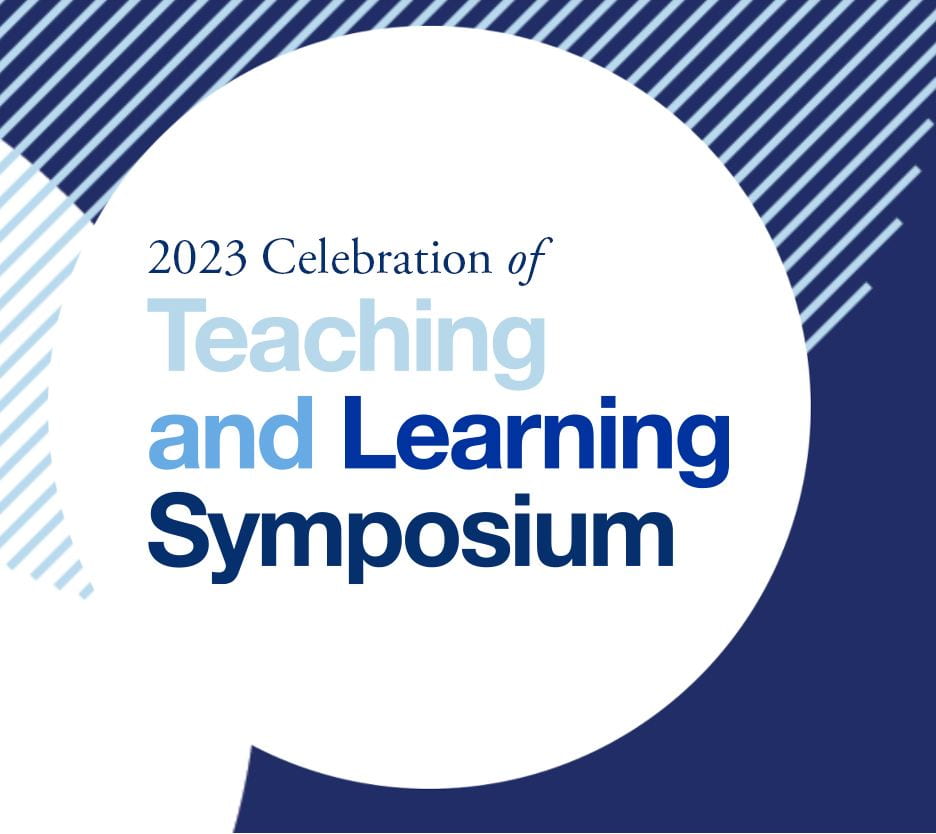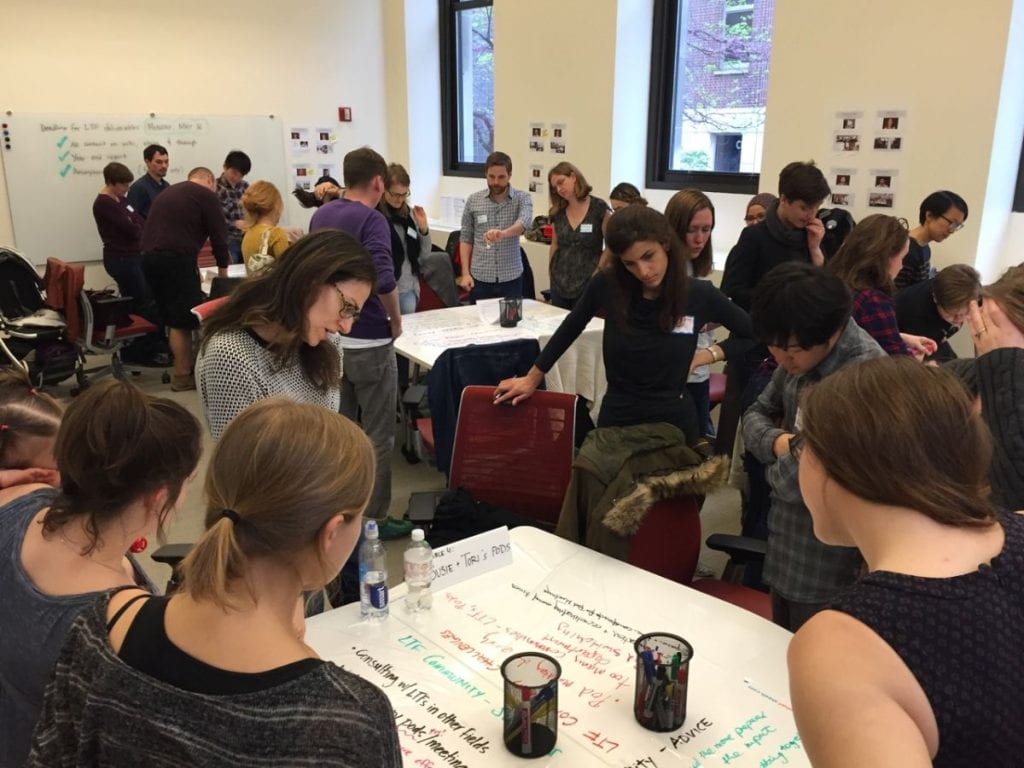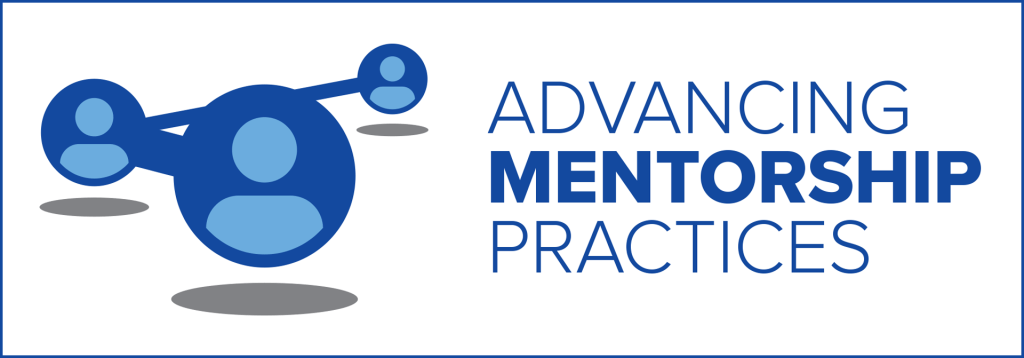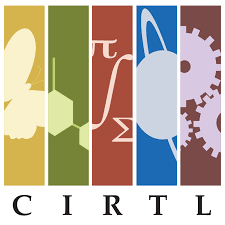This Week for Graduate Students: Celebration of Teaching and Learning Symposium Next Week!
2023 Celebration of Teaching and Learning Symposium: March 21 & March 23!
 The Office of the Provost and the Center for Teaching and Learning invite you to the 2023 Celebration of Teaching and Learning Symposium to celebrate the ways that faculty and graduate students are transforming their courses and pedagogies.
The Office of the Provost and the Center for Teaching and Learning invite you to the 2023 Celebration of Teaching and Learning Symposium to celebrate the ways that faculty and graduate students are transforming their courses and pedagogies.
Join us for an in-person panel and celebratory reception on Tuesday, March 21, and three live online panels on Thursday, March 23, featuring Columbia faculty and graduate students. Details about the graduate student panel can be found below:
Panel: Taking the Lead—Developing Agency as a Graduate Student Instructor
How might graduate students creatively prepare for leading and designing their own courses? This panel features three doctoral students discussing ways they have leveraged campus resources and interdisciplinary communities in order to make the most of teaching appointments at Columbia. Panelists will discuss preparations they undertook to develop confidence as lead instructors, and share insights arising from inspiring teaching experiences in departmental courses, the GSAS Teaching Scholars program, and the Core Curriculum. Panelists include Tylar Colleluori, Ph.D. Candidate in Italian, Simone Paci, Ph.D. Candidate in Political Science, and Sara Samuel, PhD Candidate in Sociomedical Sciences
Date & Time: Thursday, March 23, 3:00 PM–4:00 PM
Location: Online
Participation in this and other panel sessions in the Celebration of Teaching & Learning Symposium count towards completion of the Teaching Development Program (TDP).
Lead Teaching Fellow Applications Open Next Week!
 The Lead Teaching Fellowship is a paid professional development opportunity for doctoral and MFA students who are committed to promoting pedagogical practices and conversations among their peers. This fellowship is available to doctoral students in all schools at Columbia University in years 2–7 in their program as of Fall 2023, as well as MFA students in years 2–3 of their program in the School of the Arts. 2023-24 Lead Teaching Fellow applications will open Monday, March 20.
The Lead Teaching Fellowship is a paid professional development opportunity for doctoral and MFA students who are committed to promoting pedagogical practices and conversations among their peers. This fellowship is available to doctoral students in all schools at Columbia University in years 2–7 in their program as of Fall 2023, as well as MFA students in years 2–3 of their program in the School of the Arts. 2023-24 Lead Teaching Fellow applications will open Monday, March 20.
Making the Most of Mentorship
Columbia graduate students and postdocs are invited to a special interactive workshop, in which participants will learn concrete strategies for identifying and addressing common mentorship challenges, and hear candid perspectives from an interdisciplinary group of mentor-mentee pairs. The session will end by identifying on-campus resources and steps for taking a mentorship relationship to the next level.
This session will offer pertinent guidance and models for current and future mentees and those planning to take on the role of academic mentor during their careers. It is a collaborative offering of the Center for Teaching and Learning, the Office of Postdoctoral Affairs, and the Office of Research Compliance and Training. Light snacks will be available to registered participants.

Date: Thursday, March 23, 2023
Time: 5:30 PM – 7:00 PM
Location: CUIMC Campus, 1202 & 1203 Vagelos Education Center
Participation in this session counts towards completion of the Teaching Development Program (TDP).
Microteaching
Want to practice a new in-class activity or just get some more practice before teaching in your classroom? Join peers in a Microteaching Practice session where you will divide into groups of 3-4 with a facilitator and take turns delivering short samples of instruction to each other. After each teaching sample, your facilitator and your peers will offer structured feedback to support your teaching. Whether you are currently teaching at Columbia or not, all graduate students looking to practice teaching are welcome to attend this Microteaching Practice session.
Date: Friday, March 24, 2023
Time: 12:00 PM – 2:00 PM
Location: 204 Butler Library
Participation in Microteaching counts towards completion of the Teaching Development Program (TDP).
CIRTL Professional Development Series
 “Be Your Own Driver: Imagining Post-PhD Career Versatility” Series
“Be Your Own Driver: Imagining Post-PhD Career Versatility” Series
This workshop series, organized by the Center for the Integration of Research, Teaching and Learning (CIRTL), supports graduate students and postdoctoral researchers at all levels to articulate and build upon professional skills acquired within and outside of academic experiences.
- March 21: Mentoring and Advising Relationships: What Skills am I Developing?
- March 28: Building my Networks and Engagement in Communities: What Connections am I Growing and Why?
- April 4: Graduate Skills and Competencies: How am I the Author and Narrator of my Story?
- April 11: Putting it All Together: How do I Articulate and Implement a Career Development Plan?
Participation in these sessions can count towards completion of the Teaching Development Program (TDP).
Upcoming Lead Teaching Fellow Events
The 45 2022-23 Lead Teaching Fellows are running workshops and discussions in departments all around Columbia. These are generally advertised locally. Below are upcoming events that are open to participants beyond the LTFs home departments.
LTF events count towards track completion in the Teaching Development Program.
Academic Integrity: How to Define Plagiarism and Avoid Unintentional Academic Misconduct
Academic integrity is the key value and moral code of academia. As a student, we are often reminded to avoid any forms of academic misconduct during our studies, but sometimes unintentional plagiarism may occur in some academic settings due to the unawareness of the boundary between integrity and misconduct. In this workshop, we will:
- Review the definition of academic integrity in the new tech era (emergence of AI-based technologies like ChatGPT).
- Explain the differences between quoting, summarizing and paraphrasing and how to avoid unintentional plagiarism.
- Share resources available for instructors to identify plagiarism and help students maintain academic integrity.
This event is led by Lead Teaching Fellow Diandian Zhao (Civil Engineering and Engineering Mechanics). It is open to all graduate students. Lunch will be provided.
Date & Time: Thursday, March 23, 12:00 PM–1:00 PM
Location: Mudd 611 (Civil Engineering Conference room)
Registration: here
Inquiry-Based Learning: Teaching Students to Think Like Scientists
How do you teach someone to “think like a scientist?” Inquiry-based learning—which encourages students to form their own research questions and to explore these questions autonomously, using a variety of provided resources—is a straightforward way to introduce students to the research process and to reinforce higher-order thinking. Furthermore, inquiry-based learning in an undergraduate lab setting has been shown to be effective for both STEM and non-STEM students, provided that the assignments are scaffolded carefully. At this workshop, we will facilitate an open discussion on the best practices for implementing inquiry-based assignments in undergraduate astronomy classes. What’s the best way to prepare non-STEM students for inquiry-based assignments and labs? What’s the most effective way to scaffold these assignments? Which data sets, computer-based tools, or other resources might be most appropriate to provide to the students working through inquiry-based labs? This collective brainstorming will encourage attendees to explore inquiry-based learning in their own classrooms, regardless of discipline.
This event is led by Lead Teaching Fellow Ryan Golant (Astronomy). It is open to graduate students in the physical sciences.
Date & Time: Thursday, March 23, 1:30 PM–2:30 PM
Location: Pupin 1402 (the Astronomy library)
Registration: here
Metacognition and Inclusive Learning: How to Think Not, What to Think
“Children must be taught how to think, not what to think.” Margaret Mead’s famous quote about children’s learning raises the question at all levels of education: How can we as teachers teach our students not only specific material, but how to become better learners? Metacognition is the act of thinking about one’s own thinking and learning. In this workshop, we will strive to more fully define metacognition, discuss the various kinds of metacognitive learning, and come up with metacognitive strategies that we can tangibly implement in our classrooms. Further, we will explore how the implementation of metacognitive strategies can lead to a more inclusive learning experience in the classroom. This workshop will not only allow participants to devise strategies to aid in improving students’ ability to learn, but also will allow instructors to reflect on their own course materials and structure, leading to a more effective and inclusive classroom experience.
This event is led by Lead Teaching Fellow Jilian Pizzi (Italian). It is open to all graduate students.
Date & Time: Tuesday, March 28, 11:30 AM–1:00 PM
Location: 208b Butler Library (the Butler Studio)
Registration: email jap2247@columbia.edu
Using Rubrics to Assess Philosophical Writing
Grading written work can feel very subjective. This can make the grading process difficult for TAs, who may have a hard time assigning letter grades in a principled way, but is also challenging for students, who may feel in the dark about how their grades are being assigned. One way of making the grading process more transparent, and thus more pleasant for TAs and students, is by designing and adopting a rubric.
This workshop will have two parts. First, we’ll have a general discussion about rubrics: what they are, how they are meant to be used, and how they can benefit both TAs and students. The second part of the workshop will be a collaborative activity. As a group, we will design a rubric template that can be modified to suit the various forms of philosophical writing that TAs will encounter.
This event is led by Lead Teaching Fellow Samara Burns (Philosophy). It is open to graduate students in the humanities.
Date & Time: Tuesday March 28, 4:10 PM–6:00 PM
Location: 716 Philosophy Hall
Registration: email sb4318@columbia.edu
Take Five! Strategies for the First & Last Five Minutes of Class: A Virtual Teaching Workshop for Graduate Students in the Humanities and Social Sciences
In this virtual workshop, instructors and teaching assistants from the Humanities and Social Sciences will discuss the value of tailoring the beginning and end of class sessions, including large lectures, small seminars, and discussion sections. Though teachers are often limited in the degree to which they can adjust the main portion of any class session or deviate from the planned curriculum, the first and last five minutes of class offer an opportunity to enhance student engagement with the course material and generate useful feedback and assessment opportunities throughout the semester. Participants will share their own experiences as both instructors and students, discuss the pros and cons of various strategies and classroom activities, and exchange thoughts on best practices within a given discipline or course context. Material presented will draw from, among other resources, James Lang’s book, Small Teaching: Everyday Lessons from the Science of Learning, available as an EBook through Clio. Participants should expect to leave with a number of ideas for enriching their classroom experience through small adjustments and activities that productively “book-end” the primary course material, engage students, and improve teaching and learning outcomes.
This event is led by Lead Teaching Fellow Isabel Biascoechea (Art History & Archaeology). It is open to graduate students within Humanities and Social Sciences.
Date & Time: Friday, March 31, 10:30 AM–11:30 AM
Location: via Zoom
Registration: here
Leading Class Discussion(s)
We’ve all had the experience of leaving a classroom thinking, “Wow, that was a great class discussion!” But what makes a class discussion good? As graduate student instructors, how can we create the best environment for fruitful discussion? In this workshop, participants will share their experiences with and discuss strategies for guiding and developing class discussion. We will brainstorm together to come up with techniques for different situations, such as building confidence as an instructor leading discussion, leading large-group discussions vs. small-group discussions, how to encourage engagement and participation, handling discussions that don’t go the way you expect, and more. We will also discuss what it means to “lead discussion” in various course contexts, such as the language classroom.
This event is led by Lead Teaching Fellow Ellie Grabowski (French). It is open to all graduate students.
Date & Time: Friday, March 31, 1:00 PM–2:30 PM
Location: Maison Française east gallery
Registration: here
Consultations & Office Hours
Consultations
The CTL provides graduate students and postdocs with consultations at all points in their teaching career. These include consultations on teaching statements, professional development, preparing for the job market, teaching online, and general teaching-related support. Request a consultation.
Office Hours
Live office hours for graduate students are being held each Friday from 2:00 PM–4:00 PM ET. Current Columbia graduate students seeking guidance on teaching approaches and tactics, preparing materials for teaching portfolios, or completing tracks in the Teaching Development Program are invited to drop in, no appointment necessary – in-person in 212 Butler or online via Zoom. Please contact CTLgrads@columbia.edu for the Zoom link.